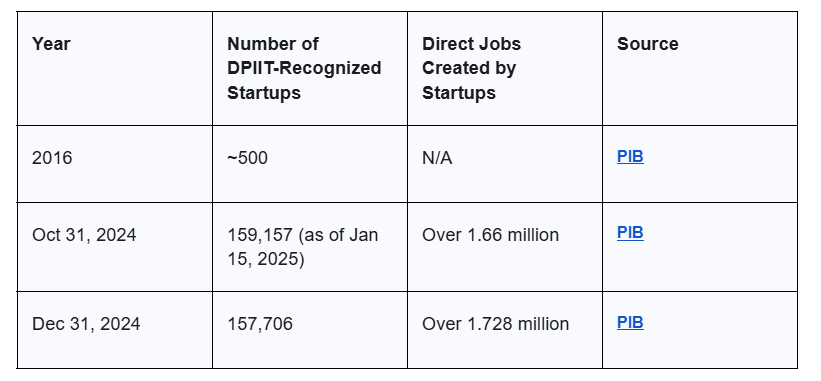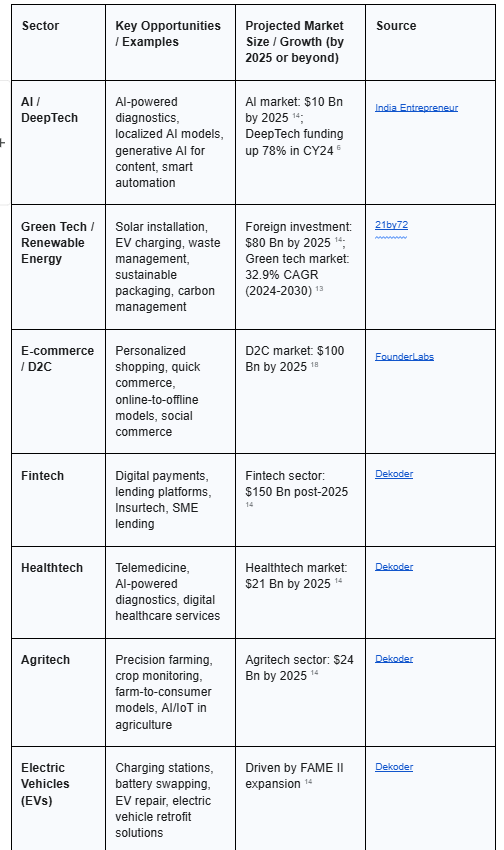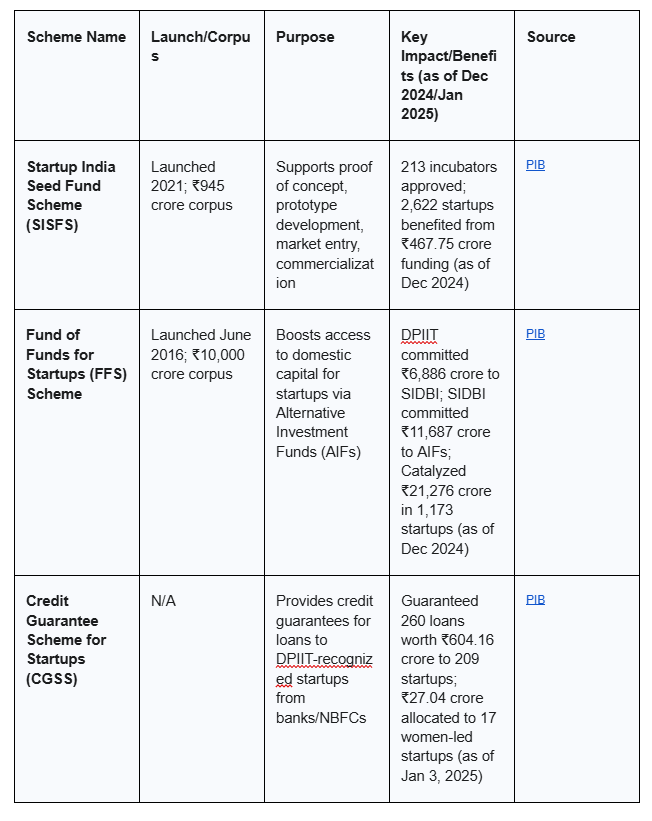Navigating India’s Startup Ecosystem in 2025: Opportunities and Challenges
India’s Booming Startup Ecosystem in 2025: Growth, Opportunities, and Future Outlook
Welcome, young innovators and curious minds! Have you ever thought about how new ideas become big businesses that change our lives? That’s the exciting world of India’s startup ecosystem, and India is quickly becoming a global leader in this space. It’s a place where smart people turn clever solutions into real-world products and services. This journey isn’t just for seasoned professionals; understanding India’s startup ecosystem 2025 now can spark your own big ideas and show you the many paths available for your future. Startups are tackling huge challenges, from making healthcare more accessible to finding new ways to protect our planet. It’s truly inspiring to witness how startup innovation in India can make a tangible difference.
In this blog post, we will explore India’s startup growth, uncover the golden opportunities awaiting new businesses, discuss the challenges they might face, and highlight the incredible support system that helps them grow. We’ll also see how India’s startup funding landscape is evolving, what opportunities are available, the main challenges, and what the future holds for Indian entrepreneurs.
India’s Startup Superpower Status: Growth and Current Scene
India has rapidly climbed the ranks to become the third-largest startup ecosystem in the world, a truly remarkable achievement. As of January 15, 2025, an impressive 159,157 startups have been officially recognized by the Department for Promotion of Industry and Internal Trade (DPIIT). This represents an extraordinary leap from just around 500 recognized startups in 2016, showcasing explosive growth over less than a decade. This rapid expansion is fueled by a large, young, and tech-savvy population, increasing internet and smartphone penetration across the country, and robust government support.
This entrepreneurial boom has had a significant impact on job creation. Startups have reportedly generated over 1.66 million direct jobs by October 31, 2024, with this number growing to over 1.728 million jobs by December 31, 2024. These figures underscore the crucial role startups play in strengthening India’s economy and providing diverse employment opportunities.
To better visualize this growth, here’s a quick look at India’s startup journey:
Table 1: India’s Startup Growth at a Glance (2016–2025)

In the startup world, a “Unicorn” is a private company valued at over $1 billion — a truly rare and significant achievement. India is home to over 100 unicorns, with their combined valuation exceeding $220 billion. In 2024, India added the second-highest number of new unicorns globally, with 6 new companies reaching this coveted status, bringing the total to 118. By May 2025, this number further increased to 119, with companies like JSW One MSME and Juspay joining the club
The funding landscape for Indian startups is also showing strong signs of recovery and strategic evolution. In calendar year 2024, the tech startup sector witnessed a 23% surge in funding, reaching $7.4 billion. Looking into the first quarter of financial year 2025 (Q1 FY25), Indian tech startups raised $2.5 billion, an 8.7% rise compared to the same period last year.This impressive funding momentum has positioned India as the third most-funded country globally, trailing only the United States and the United Kingdom.
Here’s a summary of recent funding trends:
Table 2: Key Startup Funding Trends (CY2024 & Q1 FY25)

A significant observation in the funding landscape is a clear shift in investor priorities. Venture capital firms are now focusing on “sustainable performance and strong basics” rather than just “aggressive capital deployment”. This indicates a more disciplined investment approach, where businesses are expected to demonstrate clear paths to profitability and robust fundamental operations. This emphasis on long-term viability marks a maturing phase for the ecosystem, moving beyond a “growth at all costs” mindset.
Another major development is the emergence of DeepTech startups as a strategic national priority and a key investment area. DeepTech funding, particularly in AI startups in India, saw a remarkable 78% surge in CY2024, with 87% of this investment directed towards AI-led startups. This strong focus on cutting-edge technologies is not merely about business growth; it underscores India’s evolution from being a consumer of technology to becoming a “creator, a leader, and an architect of innovation”.
Golden Opportunities for Startups in 2025
The Indian startup ecosystem in 2025 is brimming with exciting opportunities, especially in sectors leveraging advanced technology and addressing critical societal needs.
1. How AI and New Technologies Are Helping Startups Grow
Imagine computers that can learn, think, and solve problems like humans — that’s Artificial Intelligence (AI)! “DeepTech” refers to really advanced, complex technologies that come from deep scientific research. These two areas are “set to dominate” India’s startup world. DeepTech funding jumped by a huge 78% to $1.6 billion in CY2024, and guess what? 87% of that was for AI-led startups! This highlights a strong push towards cutting-edge innovation. India is becoming a “creator, a leader, and an architect of innovation” in DeepTech, meaning the nation is building its own advanced solutions rather than just adopting those from elsewhere. AI startups in India are revolutionizing various sectors: in healthcare, companies like Niramai use AI for early cancer detection, and Qure.ai assists with medical imaging. In finance, Razorpay leverages AI to detect fraud, and even in agriculture, CropIn uses AI to monitor crop health and predict yields. “Generative AI,” which can create new content like text or images, is also emerging as a game-changer for content creation and customer support. The Indian AI market is projected to reach $10 billion by 2025, with a notable trend towards “localized AI models” that understand India’s diverse languages and cultures.
2. Green & Clean Future: Startups Making Our Planet Healthier
“Green Tech” or “Climate Tech” are all about creating solutions that protect our environment and help us live more sustainably. This isn’t just a passing trend; it’s a “necessity”. India has ambitious targets, such as achieving 500 GW of energy from non-fossil fuels by 2030, which creates immense opportunities for startups in solar, wind, and energy storage solutions. Innovative green startups in India include Desolenator, which uses solar power for clean drinking water, Loopworm, which produces protein from food waste, Yulu, offering electric mobility solutions, Phool.co, which creates luxury items from temple waste, and Oorjan, simplifying residential solar energy adoption. The Indian green tech market is expected to grow at a remarkable Compound Annual Growth Rate (CAGR) of 32.9% between 2024 and 2030.
3. Growth in Online Shopping, Payments & Health Apps
India’s digital economy continues its rapid expansion. The e-commerce startup ecosystem in India has grown exponentially due to increased internet penetration and smartphone usage. The “Direct-to-Consumer” (D2C) market, where brands sell directly to customers online, is projected to reach $100 billion in 2025. These D2C brands are thriving by offering personalized shopping experiences and building direct relationships with consumers. “Quick commerce,” which focuses on super-fast delivery, is also a significant trend redefining customer expectations. The fintech startups in India sector is experiencing an unprecedented boom with innovations in digital payments (like UPI), lending, and insurance technology.
4. New Ideas Are Growing: EVs, Drones, and Local Language Apps
Beyond the major sectors, numerous other areas present exciting opportunities. The Electric Vehicle (EV) startup sector in India is booming, driven by government incentives like the FAME II policy, creating demand for EV charging stations, battery swapping, and repair networks. Agritech is transforming farming through precision tools, AI, and IoT, boosting productivity and reducing waste. This sector alone is predicted to be worth $24 billion by 2025 and host over 1,000 startups. Liberalized drone policies are opening up opportunities in agricultural mapping, industrial inspections, and drone-based delivery services.
Here’s a summary of these promising sectors:
Table 3: Top Promising Startup Sectors in India (2025)

The “Bharat” Advantage: Why Smaller Cities Are Becoming Startup Hotspots
Challenges & Struggles for Indian Startups
While the Indian startup ecosystem is growing, it’s important to acknowledge the challenges that new businesses might encounter.
1. Finding the Right Money for New Ideas
Despite the overall recovery in funding, access to consistent capital, particularly at the very early “seed” stage, remains a significant obstacle for many startups. Startups located outside the major metropolitan areas often face even steeper barriers in securing funds. In the first quarter of financial year 2025, seed-stage and early-stage funding experienced a drop compared to previous quarters, indicating that investors are becoming more cautious and selective with their initial investments in brand-new ventures.
2. The Challenge of Finding Smart People
Retaining skilled talent is another significant hurdle for Indian startups, as there is intense competition for top professionals in the market. Furthermore, with the increasing adoption of AI and other advanced technologies, the job market is expected to shift, necessitating continuous upskilling initiatives to ensure the workforce remains relevant and competitive.
Winning Hearts (and Wallets): Building Trust in a Competitive Market
“Bharat” refers to India beyond its largest metropolitan cities. A new generation of consumer tech startups is emerging from Tier 2 and Tier 3 cities, creating “hyperlocal, digital-first, and highly personalised” products and services. These regions offer largely untapped opportunities, especially in sectors like agritech, education, financial services, and clean energy, tailored to the unique needs of these communities. Government initiatives like Startup Mahakumbh are actively promoting regional inclusion, ensuring that entrepreneurial opportunities extend across the country.
Government Support and the Startup Ecosystem
The Indian government and various support organizations play a crucial role in nurturing the startup ecosystem.
1. Startup India: The Government’s Big Plan to Help Startups
Launched on January 16, 2016, Startup India is the government’s flagship initiative designed to build a strong environment for innovation and job creation. This program has significantly simplified regulatory processes, offered tax exemptions for three consecutive financial years, and provided crucial funding support to new businesses. As of January 15, 2025, over 159,000 startups are officially recognized under this initiative, demonstrating its widespread impact across the country.

2. The Role of Incubators and Accelerators — Places That Help Startups Grow
Think of incubators and accelerators in India as nurseries for very new ideas. They provide essential infrastructure like office space, legal and financial support, and access to a network of mentors and industry experts, helping new businesses refine their ideas and build a strong foundation. Both types of organizations offer crucial mentorship, access to funding opportunities, valuable networking connections with industry professionals and fellow startups, and shared resources that reduce operational costs.
3. Venture Capital (VC) Firms for Growth
Venture Capital (VC) funding in India plays a pivotal role by providing significant financial backing to startups with high growth potential. Their role extends beyond mere funding; they act as strategic partners, offering invaluable guidance, industry expertise, and access to crucial networks of potential customers, partners, and other investors. India’s VC landscape showed a strong recovery in 2024, with funding rebounding to $13.7 billion. The trend indicates a future with more industry-specific VC funds, focusing on niche sectors like AI or healthcare.
Special Support from Different Indian States
Beyond the central government, many Indian states are actively developing their own unique startup policies and innovation hubs to foster entrepreneurial growth locally.
- Maharashtra: The state plans to establish an “Innovation City” spanning 100 acres, envisioned as a transformative hub for startups and industry collaboration. Its draft startup policy offers significant incentives, including electricity tariff and stamp duty waivers, and reimbursement for patent costs (up to ₹5 lakh for domestic patents and ₹20 lakh for international ones). The policy aims to incubate 50,000 startups and create 2.5 million jobs, with a strong focus on promoting women in leadership roles within startups.
- Karnataka: In its 2025 budget, Karnataka allocated ₹50 crore for a new Centre for Applied Artificial Intelligence for Tech Solutions and a substantial ₹1000 crore for a Local Economy Accelerator Program, which aims to generate 500,000 employment opportunities across the state.The state also plans to develop “Global Innovation Districts” in cities like Mysuru, Belagavi, Dharwad, and Bengaluru, and an “Agri-Tech Accelerator” in Kalaburagi to integrate technology into the agricultural sector.
- Telangana: The Telangana Startup Policy offers benefits such as reimbursement of State Goods and Services Tax (SGST) for startups (up to ₹1 crore turnover for the first three years) and 30% reimbursement for international marketing costs (up to ₹5 lakh per year). The policy particularly supports manufacturing startups with tax benefits and incubation support, promoting technology, innovation, and sustainability in the manufacturing industry.
- Gujarat: Gujarat’s updated Industrial Policy for 2025 provides capital investment subsidies, interest, and stamp duty support, with additional incentives for businesses focusing on green manufacturing. The “Startup Gujarat Scheme” offers up to ₹30 lakh in seed funding and expert mentorship. Furthermore, Gujarat’s GCC Policy (2025–30) aims to establish the state as a global hub for Global Capability Centers (GCCs) by leveraging its advanced digital infrastructure, strategic location, and green energy leadership.
A key observation is the government’s role as a strategic enabler, extending beyond mere financial provision. Initiatives like Startup India prioritize “simplification and handholding,” “legal support and fast-tracking patent examination,” and fostering “industry-academia partnership”.State policies, too, emphasize creating a “business-friendly regulatory environment” and streamlining approvals.This holistic approach signifies that the government understands that financial aid alone is insufficient. By reducing bureaucratic hurdles, protecting intellectual property, and fostering connections, the government is building a foundational environment where startups can truly innovate and scale, attracting more private investment.
Emerging Trends and the Road Ahead
India’s startup ecosystem is poised for continued transformation, driven by several key emerging trends.
1. The rise of Web3 (blockchain) and more green tech
The next generation of the internet, “Web3,” which focuses on decentralization and user ownership, primarily powered by blockchain technology, is gaining traction. This opens up exciting new areas like “Decentralized Finance” (DeFi), where financial transactions occur without traditional intermediaries, “NFT marketplaces” for unique digital assets, and the development of immersive virtual worlds in the “Metaverse”. The Web3 sector has already shown significant growth in capital, indicating its promising potential.
2. Personalized experiences and sustainable products
Consumer preferences are evolving, with a growing demand for personalized and intuitive solutions. Sustainability is no longer a niche; it’s a core value proposition, with 43% of Indian consumers expressing a preference for eco-friendly brands. Direct-to-Consumer (D2C) brands are leading this charge by prioritizing biodegradable packaging and ethical sourcing.The rapid growth of quick commerce and D2C models also highlights a strong consumer demand for convenience and direct, authentic relationships with brands.
3. Building for long-term success
There is a noticeable shift among startups from simply “chasing growth” to “building with clarity, stronger unit economics, and long-term vision”. This indicates a greater emphasis on profitability and sustainable business models. To retain top talent, employee stock ownership plan (ESOP) buybacks doubled in 2024, fostering wealth creation and improving talent retention within the ecosystem.
4. India’s growing global connections
India is increasingly becoming a magnet for global venture capital and private equity investments.4 Indian startups are also actively pursuing partnerships with global corporations and expanding into international markets. Initiatives such as the “Innovation Handshake” with the United States are fostering stronger connections between innovation ecosystems. Furthermore, India’s G20 Presidency played a significant role by institutionalizing the Startup20 Engagement Group, which aims to facilitate collaboration among global economies.
India’s growing role as a global AI and tech hub is also becoming increasingly apparent. The significant investment in AI, the rise of DeepTech, and the emergence of India as a hub for Global Capability Centers (GCCs) leveraging Generative AI all point to India’s burgeoning technological prowess. This indicates that India is not merely a consumer or adopter of global technology but is increasingly becoming a creator and exporter of cutting-edge solutions..
Practical Advice for Entrepreneurs and Investors
For those inspired by India’s dynamic startup ecosystem, here’s some practical guidance:
- Solve Real Problems: Look around your community or in India. What problems do you see that technology or a new approach could solve? Startups thrive by addressing genuine needs.
- Learn and Adapt: The world of technology is constantly evolving. Stay curious about new areas like AI, Web3, and Green Tech. Continuous learning is key to staying ahead.
- Build Strong Basics: Focus on creating a product or service that people truly need and are willing to pay for. It’s more important to have a solid business model that generates profit than just chasing high valuations.
- Seek Mentors and Networks: Don’t try to do it all alone. Connect with experienced people who can guide you. Incubators, accelerators, and online platforms like BHASKAR can help you find valuable mentors and build your network.
- Don’t Be Afraid to Start Small: Many incredibly successful startups began with simple ideas and grew step-by-step. Every big journey starts with a single step.
For future investors: What to look for in promising startups
- Clear Path to Profitability: Prioritize startups that have a solid plan for making money and achieving financial sustainability, not just rapid growth.
- Strong Team: A passionate, skilled, and adaptable team is often the most critical factor for a startup’s success.
- Impact and Sustainability: Consider businesses that are solving important societal or environmental problems (like climate change or healthcare access) and are built to last, aligning with the growing “Tech for Good” trend.
- Innovation: Look for startups that are doing something truly new, or doing something existing in a significantly better, more efficient way.
- Market Fit: Is there a real, demonstrable need for their product or service? Pay special attention to solutions tailored for the “Bharat” market, which offers immense untapped potential.
A fundamental observation for young dreamers is the importance of cultivating an entrepreneurial mindset rooted in problem-solving and resilience. The advice to “solve real problems” and “build strong basics” directly addresses the challenges of market relevance and financial viability. Furthermore, the need to “handle failure” and “stay informed” highlights that long-term success in the startup world demands adaptability, continuous learning, and a deep understanding of market realities over superficial metrics. This approach emphasizes that entrepreneurship is a journey of constant evolution and perseverance.
Future Outlook: What’s Next for Indian Startups?
India’s startup ecosystem is on an incredible trajectory, solidifying its position as the world’s third-largest. The robust growth in the number of recognized startups and the recovering funding landscape underscore the nation’s entrepreneurial vitality. With a strong pipeline of innovative companies, India is projected to reach 250 unicorns by 2030, a testament to its immense potential. This growth is fundamentally driven by a large, young, and dynamic population, widespread digital adoption, and unwavering government support.
The future looks exceptionally bright for innovation and entrepreneurship in India. There will be a continued and intensified focus on DeepTech and AI, Green Tech, and developing tailored solutions for “Bharat’s” unique challenges. The ecosystem is becoming increasingly inclusive, with more women and youth leading ventures, contributing diverse perspectives and unlocking new market opportunities. Furthermore, the market is maturing, with a greater emphasis on profitability and sustainable growth models, ensuring long-term stability and resilience. This positive outlook is further bolstered by strong collaboration among government bodies, investors, and support organizations, creating a cohesive environment for success.
Conclusion
India’s startup journey is a compelling story of ambition, innovation, and incredible potential. From a handful of ventures just a few years ago to becoming the world’s third-largest ecosystem, the nation has shown an extraordinary capacity for growth and transformation. This isn’t just about big companies and grand valuations; it’s about countless individuals with bright ideas, working hard to solve real problems and make a tangible difference in people’s lives. With continued government support, a vibrant investment community, and the boundless energy of its diverse population, India’s entrepreneurial spirit is truly unstoppable. The young minds of today are the innovators of tomorrow, and their contributions will undoubtedly shape an even brighter future for India and the world.
At Biz Consultancy, we are proud to support this exciting ecosystem by empowering startups with expert guidance, strategic insights, and hands-on support to help them succeed and scale.
💡 Looking to start your own business? Contact Biz Consultancy today for expert guidance!


.jpg)
Comments
Post a Comment